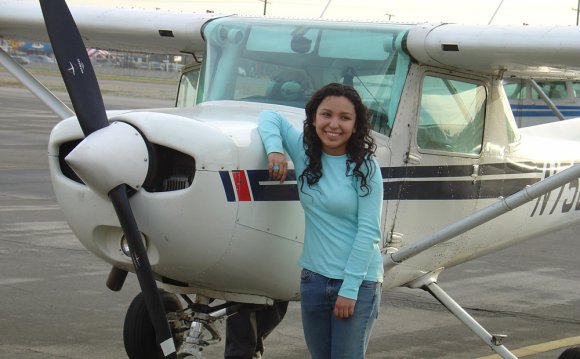
Students with a passion for the high-tech engineering world of airplanes, helicopters, and spacecraft are right at home in the at Embry-Riddle. Founded in the 1950s, the department has a long history of excellence and has been ranked by U.S. News and World Report as the top program of its kind in the United States for 16 consecutive years.
Aerospace Engineering deals with the scientific principles that govern the design of airplanes, spacecraft, and jet engines. After studying fundamental mathematics and physics, Aerospace Engineering students study the core areas of aerodynamics and propulsion, dynamics and control, and structures and materials. These studies give them the necessary background to take the year-long senior capstone aircraft/spacecraft/propulsion design courses. There are ample opportunities for lab courses and hands-on experiences.
- The Aeronautics track pertains to the knowledge of atmospheric vehicles that includes its aerodynamics with wind tunnel experience; the internal structural design and analysis; and the stability, controllability and flight testing of aircraft. Student teams design and analyze their own aircraft in their senior-year capstone courses.
- The Astronautics track focuses on orbital mechanics, spacecraft controls, rocket propulsion, and structural analysis, which apply to industry-focused problems in the spacecraft design sequence. Students have frequent opportunities to participate in national competitions and design/build/test projects.
- The Propulsion track focuses on air-breathing propulsion, including turbojets, turbofans, and ramjet engines. Building on a strong foundation of thermodynamics and propulsion theory, propulsion students will conclude their tenure by designing an entire jet engine from scratch, including sizing, cycle studies, and detailed component design.
Embry-Riddle is known throughout the aviation and aerospace industry as the top provider of hands-on, pragmatic education, producing engineers who are ready to solve the real-world problems encountered by the aerospace industry. An alumni survey showed that 96.3% of graduates were either employed (80.5%) or accepted into graduate school (14.8%) one year after graduation.
The department also offers several graduate degrees as well as an accelerated program. The recent addition of a Ph.D. in Aerospace Engineering increases opportunities for graduate and undergraduate students alike to pursue new and advanced knowledge to reinforce and enhance the classroom experience.
RELATED VIDEO












